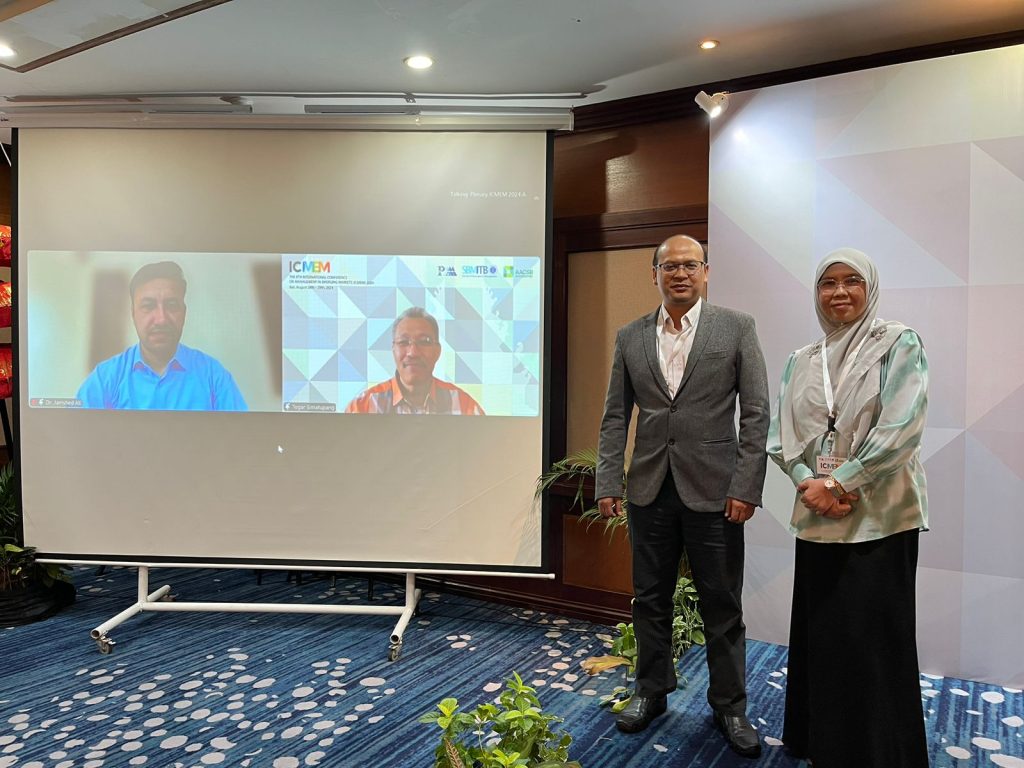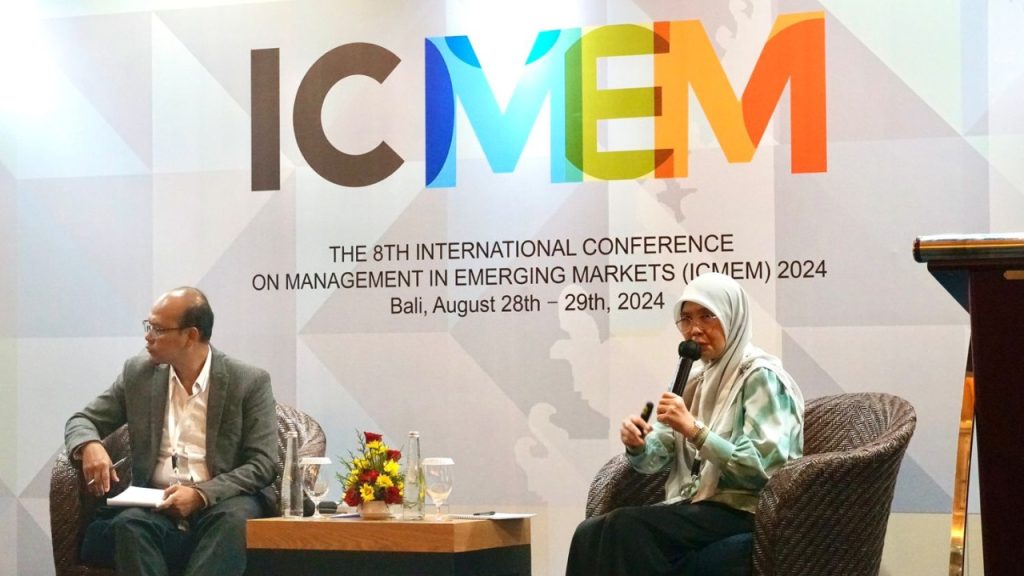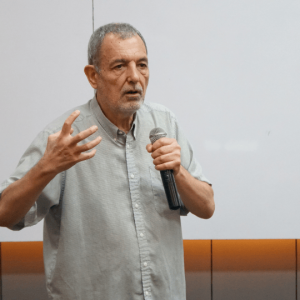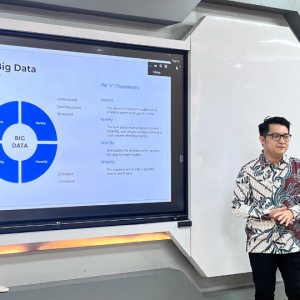The second day of the International Conference on Management in Emerging Markets (ICMEM) 2024, organized by the SBM ITB, commenced with an insightful sharing session featuring distinguished speakers: Prof. Suhaiza Zailani, Professor of Supply Chain Management at the University of Malaya, Malaysia; Dr. Jamshed Ali, Head of Sustainable Finance and Fintech at Beaconhouse National University, Pakistan; and Prof. Ir. Togar M. Simatupang, M. Tech., Ph.D., Professor of Operations and Supply Chain Management at SBM ITB. The event took place on August 29, 2024, at The Patra Hotel, Bali.
Prof. Suhaiza Zailani opened the session by discussing the Malaysian government’s efforts to adopt the Environmental, Social, and Governance (ESG) framework and its application among Malaysian SMEs. “ESG is not just for large corporations; SMEs can also greatly benefit from ESG implementation,” she noted.
Despite these advantages, Malaysian SMEs still face challenges in raising awareness about ESG, making it difficult for business owners to understand and apply ESG principles. “Adopting ESG can enhance business reputation and attract investors,” Prof. Suhaiza explained, stressing the need for governmental intervention in promoting ESG education among SMEs. She also suggested that similar strategies could be effective in Indonesia.
The session continued with a presentation by Prof. Togar, who shifted the focus to sustainable corporate governance. He emphasized that sustainable governance encompasses systems, regulations, structures, and practices that enable companies to operate while ensuring economic, social, and environmental sustainability.
“Sustainable governance is only achievable when internal and external elements are aligned,” he remarked. He highlighted the importance of governance in addressing current challenges related to business ethics and global corporate participation, citing Philips Healthcare as an example. He described their integrated approach across corporate strategy, data and systems, structure and governance, performance management, and organizational culture.
While there are numerous challenges in achieving sustainable governance, these challenges also present growth opportunities. Prof. Togar pointed out that uncertainty creates opportunities for resilience strategies, low accountability necessitates the development of transparency policies, and the complexity of decision-making encourages stakeholder engagement to ensure corporate relevance.
In conclusion, Prof. Togar offered practical recommendations for implementing sustainable governance, including appointing a Head of Sustainability and establishing a dedicated Sustainability Team, advocating for a holistic approach to organizational structure.
Dr. Jamshed Ali concluded the presentation session with a discussion on the challenges faced by emerging markets. “Emerging markets hold tremendous potential, with their gross domestic product (GDP) accounting for 55% of the world’s total GDP and a population of 5 billion people,” he stated, inspiring optimism among the attendees.
However, emerging markets are particularly vulnerable to the adverse effects of climate change due to their heavy reliance on the agricultural sector and limited financial access. Additionally, a significant technology gap further elevates the perceived risks for investors in these regions.
To address these challenges, Dr. Jamshed Ali emphasized the urgent need for policies that promote investment in climate-resilient infrastructure, focusing on economic activities that can adapt to or mitigate the impacts of climate change, especially in climate-sensitive sectors like agriculture.
The opening session of ICMEM 2024’s second day provided valuable insights into ESG and its implications for emerging markets. Moving forward, the adoption of ESG principles will be crucial in driving economic capacity building within both corporations and SMEs, encouraging the audience to integrate these concepts into their practices.
For more information on the sessions at ICMEM 2024, visit https://icmem.sbm.itb.ac.id.






